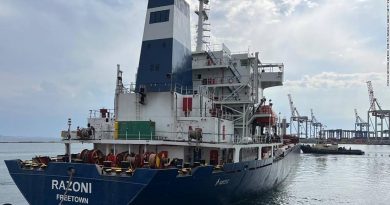Guatemala’s elPeriodico shutting due to government ‘persecution’
Closing of elPeriodico underscores regional trend of governments cracking down on independent media, observers say.
One of Guatemala’s oldest and most well-known news organisations has said it will close its doors later this month amid what it described as a campaign of government persecution.
ElPeriodico, a 27-year-old investigative news outlet known for reporting on government corruption, said on Friday that it would cease operations on May 15.
“With deep sadness, we are forced to stop the daily edition of elPeriodico,” the directors said in a statement. “The persecution has intensified, as has the harassment of our advertisers.”
The decision came after Guatemalan authorities arrested the news outlet’s award-winning founder, Jose Ruben Zamora, on charges of money laundering and blackmail in July of last year.
The publication accused the government of President Alejandro Giammattei of trying to discredit critical voices through “criminal persecution and economic pressure”.
🚨🚨 Aviso importante a nuestros lectores, anunciantes, sociedad en general y comunidad Internacional. ⚠️ pic.twitter.com/jt0Z8Y8gMc
— elPeriódico (@el_Periodico) May 12, 2023
News outlets across the Americas region have faced growing difficulties in recent years as governments have sought to clamp down on independent voices.
Last month, the Salvadoran investigative news outlet El Faro announced it would move its administrative and legal operations to Costa Rica, citing harassment from the government of President Nayib Bukele.
This included infiltration of El Faro reporters’ phones with Pegasus, an Israeli-made spyware that also has been used in Mexico and other countries.
In Guatemala, Zamora’s trial could end up being a “breaking point” for press freedom for the country, said Juan Pappier, acting deputy director for the Americas at Human Rights Watch.
The trial, which began this month, has prompted the arrest of four of Zamora’s defence lawyers. In addition, six journalists and three columnists from elPeriodico are being investigated in parallel processes.
In November, elPeriodico cut 80 percent of its staff and put an end to its print publication, focusing exclusively on digital in a bid to continue its work.
Zamora has repeatedly described his arrest as “political persecution” amid the paper’s spotlight on alleged cases of corruption by Giammattei’s government. The prosecutor’s office denies these accusations.
“It has been 10 hard months of resistance. We thought we could adapt, transform and survive with an online version,” added Ramon Zamora, the founder’s son.
“However, the persecution intensified, as did the harassment of our advertisers and maintaining our operations became more and more difficult.”




